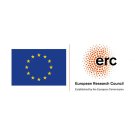EUROPOPULISM - European Integration, Populism and European Cities

Guido Tabellini
Principal Investigator
ERC-2016-ADG
October 2017 - March 2023
Grant agreement ID: 741643
Why is it so difficult to achieve further European political integration? This question motivates the first part of the project. The standard approach in economics presumes that integration of countries reflects a tradeoff between economic benefits and the cost of cultural heterogeneity. To assess this tradeoff, we exploit survey data to quantify cultural heterogeneity within and between EU countries, comparing it to the US. We also investigate time variation, to assess whether economic integration led to cultural convergence. Finally, exploiting regional variation, we seek to identify a cultural core and compare it to the economic core of the EU. We conjecture the following conclusion: although European economic integration did not lead to cultural convergence, the primary obstacle to integration is not cultural heterogeneity per se, but the presence of other barriers, such as national identities or national institutions, which amplify its effects.
The second part of the project studies the causes and implications of two related phenomena: the diffusion of nationalism and of political populism, with behavioral voters. We study nationalism as endogenous identification with one’s nation, and analyze how it interacts with domestic political institutions and political processes in a setting of international policy coordination. We study populism as due to the reaction of disappointed voters who behave according to Prospect theory. Our main goal is to explain these behavioral phenomena, and to derive predictions about the effect of institutional reforms.
Publications
- Culture, Institutions and Policy, (with Torsten Persson) - prepared for The Handbook of Historical Economics, edited by Alberto Bisin and Giovanni Federico
- Identity, Beliefs, and Political Conflict, (with Giampaolo Bonomi and Nicola Gennaioli), The Quarterly Journal of Economics
- Presidential Lecture: Identity Politics, (with Nicola Gennaioli), Econometrica, forthcoming
- Podcast: Identity politics and polarisation, VoxTalks Economics
Working Papers
- Identity Politics, Nicola Gennaioli and Guido Tabellini
- Economic Shocks and Populism: The Political Implications of Reference-Dependent Preferences, Fausto Panunzi, Nicola Pavoni, Guido Tabellini
- Online Political Debates, Leonardo D'Amico, Guido Tabellini
- Mobile Internet and the Rise of Communitarian Politics, Marco Manacorda, Guido Tabellini, Andrea Tesei
Presentations
- Fifth Richard Goode Lecture
- Changing Dimensions of Political Conflict and the Rise of Populism International Monetary Fund, December 11, 2019
https://www.imf.org/en/News/Seminars/Conferences/2019/11/22/fifth-richard-goode-lectur - The Puzzle of Rising Populism
International Monetary Fund Podcast, December 27, 2019
https://www.imf.org/en/News/Podcasts/All-Podcasts/2019/12/27/tabellini-on-populism
- Changing Dimensions of Political Conflict and the Rise of Populism International Monetary Fund, December 11, 2019
- Forum for Economic Dialogue, Opening Lecture
Does Europe Belong Together? UBS International Center for Economics in Society, University of Zurich, November 12, 2018
Editorials
- The rise of populism, Guido Tabellini, Vox.eu, 29.10.2019

This project has received funding from the European Research Council (ERC) under the European Union’s Horizon 2020 research and innovation programme.